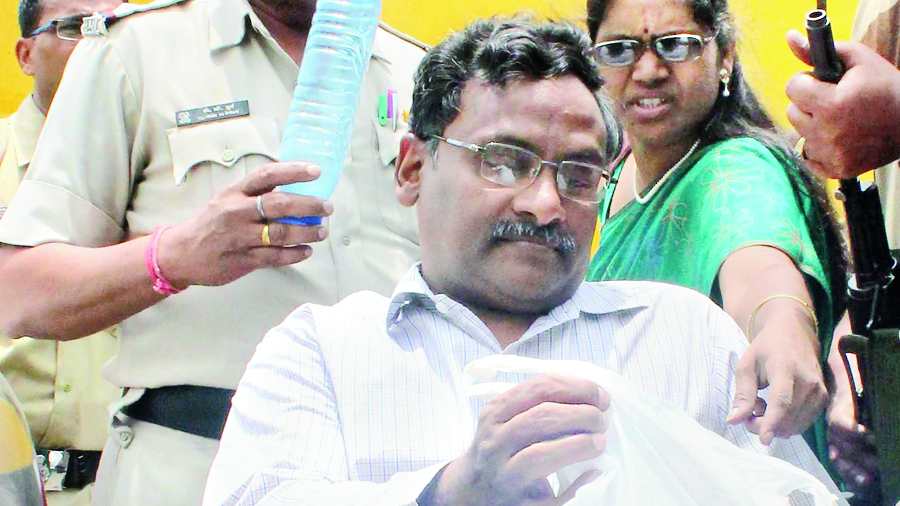Delhi University’s (DU) Ram Lal Anand College on Friday said its governing body would take up the matter of G.N. Saibaba’s reinstatement as a faculty member if there was a representation in this regard.
Saibaba was acquitted in a Maoist-links case by the Nagpur bench of Bombay High Court on Friday. The court also ordered his immediate release from jail. The Supreme Court refused to stay the former DU professor’s acquittal, while allowing the National Investigation Agency (NIA) to move an application for urgent listing.
The college terminated the services of Saibaba last year. His wife, A.S. Vasantha Kumari, had described the
college’s decision as “witch-hunt” and alleged that it was a violation of an employee’s rights.
Asked whether Saibaba would be reinstated after his acquittal by the court, principal Rakesh Kumar Gupta said the college could not take up the matter on its own.
“If we receive any representation, the matter will be presented to the governing body for discussions. Moreover, the matter regarding his termination is already in court,” Gupta told PTI over the phone.
Saibaba, an assistant professor of English, was suspended after his arrest by the Maharashtra police in 2014. His wife and daughter were receiving half the amount of his salary since his arrest.
In March 2017, a sessions court in Maharashtra’s Gadchiroli district convicted Saibaba and others, including a journalist and a Jawaharlal Nehru University (JNU) student, for their alleged Maoist links and indulging in activities amounting to waging war against the country.
The court had held Saibaba and the others guilty under various provisions of the stringent Unlawful Activities (Prevention) Act (UAPA) and the Indian Penal Code (IPC).
Overturning the verdict, the high court noted that the trial court proceedings were “null and void” in the absence of a valid sanction under the UAPA and hence, its judgment was liable to be set aside and quashed.











